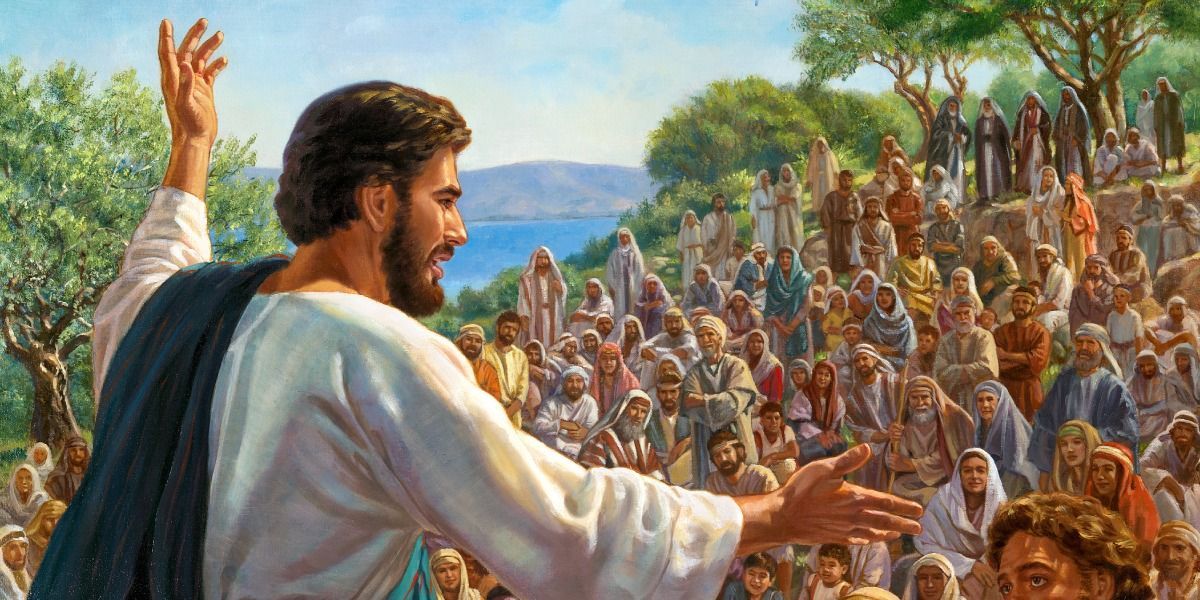
The New Testament testifies that, in Jesus, God has fulfilled the promise He had made since ancient times to patriarchs and kings; and that the prophets had passed on from one generation to the other of believers. The Lord, in his public ministry, did not give his listeners a definition of the Kingdom of God, because it would exceed our understanding, but made it evident through his miracles and words, especially his parables. The Kingdom of God is not immediately visible to anyone who looks, but only to those who do so in faith, because this revelation does not depend on the flesh or blood (Mt 16.17), but on the Father.
Certainly, parables make us listeners who reflect on God’s presence in history. In front of them the reader may feel challenged, to the point of being irritated and closed, or intrigued and surrendered, but never leaves him indifferent. The parables seduce us into making a decision about the future of our hope. Since the beginning of Christianity, every believer has had to interpret them from his own life and that of his community.
Jesus ensured that they had this evocative capacity by using real-life images to communicate the secrets of the Kingdom: a merchant of fine pearls (Mt 13.46), a net cast into the sea (Mt 13:47), a treasure hidden in a field (Mt 13.44), wedding ceremonies (Mt 25.1-13), a wedding banquet (Mt 22.2-10), money entrusted in the absence of the master (Mt 25.14-30) , generously contracted winemakers (Mt 20.1-16), a sower that pours grain into the soil (Mk 4.26-29), a mustard grain (Mk 4.30-32), etc.
As a good pedagoguus, he was revealing the secrets of the Kingdom without ever defining it specifically: “What will we compare the Kingdom of God to or what parable will we expose it to? It’s like…” (Mk 4.30), and leaves open to the imagination this mysterious reality that only the singles at heart quickly perceived as good news (Mt 11.25; Lk 10.21). While the proud, the self-sufficient, the envious, the hypocrites could not understand.
The expression Kingdom of God appears 109 times and in the four gospels. In Jesus’ time it had to do so much with royalty itself, with all that it meant political independence of the Roman invader and economic and religious splendor. As well as with the recognition of God’s universal sovereignty. This was a visible and invisible Kingdom at the same time. The Kingdom that He revealed with His parables and works was not a future reality to which we should turn, but a reality already present among us, but which needs to be gradually opened. Like other mysteries of faith, the Kingdom is also a gift from God and our task.
Therefore, to the scribe who replied that love for God and neighbour was worth more than all the sacrifices of the Temple, Jesus says, “You are not far from the Kingdom of God!” (Mk 12.32-34). This impossibility of spatially limiting it did not mean that it was only a spiritual reality. For Jesus presents himself as the living sign of that Kingdom which he proclaims with concrete gestures: “If by the Spirit of God I cast out the demons, it is that the Kingdom of God has come to you” (Mt 12:28). When the Pharisees ask him, “When does the Kingdom of God come?”, his answer is, “The Kingdom of God comes without being felt. And they will not say, look at him here or there, for the Kingdom of God is already among you” (Lk 17:20-21). He himself is the seed of that Kingdom sown in our barren life. Mark begins his gospel with a lay invitation: “Time has been fulfilled and the Kingdom of God is near; become and believe in the Good News” (Mk 1:15).
Jesus makes clear the coming of the Kingdom by preaching for towns and cities (Lk 8:1). He eats with the excluded, welcomes prostitutes, heals the sick, forgives sinners…: all these concrete gestures are parables in action, which manifest that in his person the Kingdom of Love has come to us and that God is exercising his royalty on earth (Lk 9:11). It has ceased to be a long-cherished dream, to become a tangible reality, that it is knocking on our door and waiting for us to open it to enter our house (Ap 3.20). In this way, that absolutely transcendental dimension of God’s presence has entered our hearts and history illustrating this unique and unrepeatable encounter of eternity over time, in which “… heaven is united with the earth, the human and the divine” (from the Easter Pregón). Ω






Be the first to comment